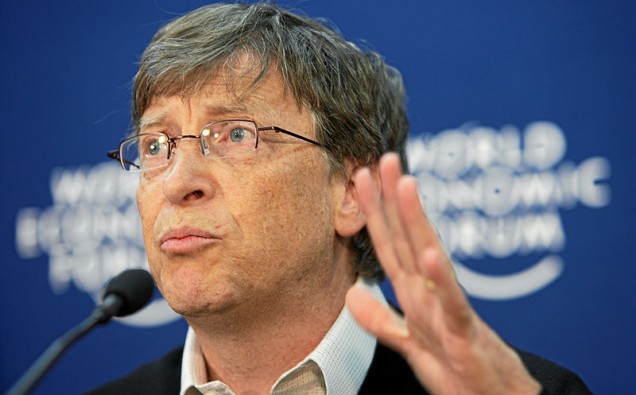
Microsoft founder Bill Gates has told politicians that innovation and free trade will be at the core of American economic competitiveness and global leadership.
“When the United States invests in innovation, it creates companies and jobs at home, makes Americans healthier and safer, and saves lives and fights poverty in the world’s poorest countries. It offers the next president a tremendous opportunity to help people in America and around the world,” the billionaire businessman wrote in an op-ed on the Reuters website.
Today more countries, are competing for global leadership, Gates said, citing such nations’ huge investments in innovation and research. For example, he referred of South Korea’s topping its research and development spending 90 percent while China has doubled its R&D finances.
On the other hand, the United States’ has “essentially flatlined,” he noted amid ongoing debate between Democratic and Republican presidential candidates on the way forward for Washington, as it faces labor market challenges in view of new competitions, offshoring of jobs and evolving globalization imperatives.
“It’s great that the rest of the world is committing more, but if the United States is going to maintain its leading role, it needs to up its game,” Gates argued.
The business leader and philanthropist, who is devoting a lot of wealth to poverty eradication under Bill and Melinda Gates Foundation, quoted instances from his own experience
“I have seen first-hand the impact that this type of research can have. I was lucky enough to be a student when computers came along in the 1960s. At first they were very expensive, so it was hard to get access to them. But the microchip revolution, made possible by U.S. government research, completely changed that. Among other things it enabled Microsoft, the company I co-founded, to write software that made computers an invaluable tool for productivity. Later, the Internet – another product of federal research – changed the game again. It is no accident that today most of the top tech companies are still based in the United States, and their advances will have a massive impact in every area of human activity.”
Meanwhile, Gates also waded into the highly charged political season in an interview with Financial Times, when he opposed protectionist approach to economy.
“Who is the monster winner of all time in scale economic business — software, airplanes, pharmaceuticals, movies? Mmm. I wonder who that is?” Gates questioned.
“I haven’t watched many [Nigerian] Nollywood or [Indian] Bollywood movies recently, sorry. [The big winner is] the US,” he said. “We’re the big beneficiary of globalization . . . It’s the biggest beneficiary by far.”
His remarks come as Republican frontrunner Donald Trump and Democrat Bernie Sanders vow to “bring manufacturing home” and turn back on the US trade agreements.
Gates illustrated his position by listing some of the top companies like Microsoft an Boeing that have reaped profits form $ 7 billion global market, and not just confining themselves to a $ 330 million domestic market.
“We’ve taken for granted too much that people understand that consumers being able to buy a variety of goods and having price competition on those goods and us being the big winner in these scale markets . . . is a huge thing,” he added.
“I wish for a week that we could shut down trade and then, you know, Boeing, Microsoft, Hollywood, pharma would resize their R&D departments for a couple of weeks for fun. And then two weeks later people would go ‘Holy smokes, that was not a very good deal’.”
Gates also has words of caution for politics advocating cutting free trade with the world.
“I’m an unabashed pro-free trade person,” he said, while emphasizing his argument.












